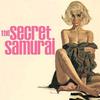synchro

Joined: Feb 02, 2008
Posts: 4530
Not One-Sawn, but Two-Sawn . . . AZ.





|

Posted on Dec 12 2009 02:25 PM
morphball
synchro
Good thoughts but I will add that my ear really developed when I learned a bit of theory. Think of it like this; imagine music as spots of sound appearing on a blank white movie screen. You might know what you like but would have little reference point for figuring out what order was behind those sounds and why you found them pleasing. Music theory simply pencils a few lines on the screen and gives you a reference point for organizing sounds. It's truly that simple. Learning theory required some study and effort but it made music itself easier and simpler.
Cool analogy; another one I can identify with is being a system administrator and learning some programming principles years back... I'm really glad I did, it's helped me a lot with my career. So how did you finally digest theory, any particular books? A college course? Fasting for 3 days out in the Arizona desert?
For me it came together in a relatively short period of time once I reached a point where I started asking questions about why chords followed the patterns they did and more importantly, why sometimes those patterns seemed to breakdown.
What I found out was that every Major key has a pattern of chords associated with it. If there was a chord built on the first note of a Major scale it would be a Major chord. In C, the "one" chord would be a C Major (or C Major 7th or possibly a C Major 6th). The chord built on the second tone of a Major scale is always a minor. In the key of C Major the "two" chord would be a D minor (or D minor 7th or D minor 6th). It goes on like this all the way through the scale. Once I learned that (it could be explained in only a few pages of text) then I quickly realized that the times that the rules seemed to breakdown was actually just because the song changed keys for a few bars. An experienced musician told me that this is called a change of "tone center" and suddenly somgs that had not made sense to me became a lot easier to understand.
A great example of a song with tone center changes is Brian Wilson's "Warmth of the Sun". It starts in C, goes to Eb in the 3rd and 4th bar and then back to C. The bridge starts in A, goes to G and ends up on a G7 chord which prepares us for the verse which is in C.
Minor keys have their own chord pattern as well, a bit more quirky and a lot more fun. The thing is, all these things are going on whether we take note or not but music ceased being frustrating and started being fun when I learned theory.
At the time I learned there weren't a lot of books in wide distribution. There was a college music textbook I found from Julliard that helped me quite a bit and the rest was filled in by asking old coots (I'm one of theose now) and pieceing it together in my mind.
Just recently I found a book on Amazon that seemed to cover the material well and I bought a copy just to verify that it deserved the Synchro Seal of Approval . . . it did. The information I had searched for back in the '70s was literally on the first few pages of this book. You don't need to go into depth or explore all of his modal ideas (although they won't hurt anything), you just need to learn how chords and scales work together in order to benefit greatly.
Hope it helps.
— The artist formerly known as: Synchro
When Surf Guitar is outlawed only outlaws will play Surf Guitar.
|
raito

Joined: Oct 16, 2008
Posts: 551
Madison, WI



|

Posted on Dec 13 2009 09:53 PM
Have you read "This Is Your Brain On Music?" It kinda debunks the prodigy thing, as far as natural aptitude. It seems to define a prodigy as someone with natural attitude. Take drawing, for example. The people you know who can draw. Aren't they always drawing? Just like the people good at music. They do it all the time. There's a couple of things I do that I've just been so obsessed with that I did them constantly until I was very, very good at them. Music wasn't one of them.
|
synchro

Joined: Feb 02, 2008
Posts: 4530
Not One-Sawn, but Two-Sawn . . . AZ.





|

Posted on Dec 13 2009 11:08 PM
raito
Have you read "This Is Your Brain On Music?" It kinda debunks the prodigy thing, as far as natural aptitude. It seems to define a prodigy as someone with natural attitude. Take drawing, for example. The people you know who can draw. Aren't they always drawing? Just like the people good at music. They do it all the time. There's a couple of things I do that I've just been so obsessed with that I did them constantly until I was very, very good at them. Music wasn't one of them.
Read and enjoyed it. I think that some people may have a natural aptitude for music, maybe they have a natural inclination to feel the rhythm or a good ear for harmony and some of these people might be more likley to succeed musically at an earlier age but I agree completely that it still comes down to hard work.
I was fortunate, I had lessons with good instructors (thanks Caroline May from Westminster High School, you gave me my first lessons in theory) and benefitted by their examples, but I still had to seek out a lot for myself and work hard to get the technique right.
IIRC, the book pointed out that it takes about 10,000 hours to become an expert in any field. This fits with my experience in life. In any career requiring true expertise it takes about 5 years of full time work before your feet are firmly on the ground. I've noticed that many medical specialties require a 5 year residency as well. There's no substitute for experience.
— The artist formerly known as: Synchro
When Surf Guitar is outlawed only outlaws will play Surf Guitar.
|
raito

Joined: Oct 16, 2008
Posts: 551
Madison, WI



|

Posted on Dec 14 2009 10:50 AM
synchro
IIRC, the book pointed out that it takes about 10,000 hours to become an expert in any field. This fits with my experience in life. In any career requiring true expertise it takes about 5 years of full time work before your feet are firmly on the ground. I've noticed that many medical specialties require a 5 year residency as well. There's no substitute for experience.
Yes, the book referes to the study that seemed to bear out the 10K hours thing. And experience and practice is essential. Even with perfect pitch, your fingers aren't going to play right unless you work at it.
|
DuaneEddysMum

Joined: Sep 30, 2009
Posts: 47
|

Posted on Dec 14 2009 11:14 AM
Very True...its when yopu combine perfect pitch with amazing technique.....you end up with ... Sabicas. Who it was claimed could hear anything once and play it...when he was 5 years old.
|
synchro

Joined: Feb 02, 2008
Posts: 4530
Not One-Sawn, but Two-Sawn . . . AZ.





|

Posted on Dec 14 2009 11:53 AM
DuaneEddysMum
Very True...its when yopu combine perfect pitch with amazing technique.....you end up with ... Sabicas. Who it was claimed could hear anything once and play it...when he was 5 years old.
I think that the chief gift in that case would be a prodigious memory. The ability to hear it once and replay the song perfectly in his head. I can do that, but I usually have to hear the song more than once. I find that when I'm copping a solo or in some other way learning a song the toughest part is remembering the part completely and in detail in my head. Once that's happened the rest is pretty easy.
— The artist formerly known as: Synchro
When Surf Guitar is outlawed only outlaws will play Surf Guitar.
|
Stormtiger

Joined: Dec 12, 2006
Posts: 2687
Ventura, CA




|

Posted on Dec 14 2009 12:50 PM
Harmony by Walter Piston is the book we used in college, it has been around since 1941 and is readily available. I took some classes in college, you learn the basic of chords (in any key), and what makes them major, minor, augmented, etc.(root, third, fifth and so on), and how to move the voices of the chords gracefully, logically and efficiently, sometimes by chord inversions (you write 4 part chorals). You learn a lot of conventions, (like that the 7th always resolves to the tonic (or its sounds weird) and how certain cadences can be used to have more "power" than others. Great stuff, would come in handy when writing a concerto but not necessary when playing 3-chord surf music.
synchro
For me it came together in a relatively short period of time once I reached a point where I started asking questions about why chords followed the patterns they did and more importantly, why sometimes those patterns seemed to breakdown.
What I found out was that every Major key has a pattern of chords associated with it. If there was a chord built on the first note of a Major scale it would be a Major chord. In C, the "one" chord would be a C Major (or C Major 7th or possibly a C Major 6th). The chord built on the second tone of a Major scale is always a minor. In the key of C Major the "two" chord would be a D minor (or D minor 7th or D minor 6th). It goes on like this all the way through the scale. Once I learned that (it could be explained in only a few pages of text) then I quickly realized that the times that the rules seemed to breakdown was actually just because the song changed keys for a few bars. An experienced musician told me that this is called a change of "tone center" and suddenly somgs that had not made sense to me became a lot easier to understand.
A great example of a song with tone center changes is Brian Wilson's "Warmth of the Sun". It starts in C, goes to Eb in the 3rd and 4th bar and then back to C. The bridge starts in A, goes to G and ends up on a G7 chord which prepares us for the verse which is in C.
Minor keys have their own chord pattern as well, a bit more quirky and a lot more fun. The thing is, all these things are going on whether we take note or not but music ceased being frustrating and started being fun when I learned theory.
At the time I learned there weren't a lot of books in wide distribution. There was a college music textbook I found from Julliard that helped me quite a bit and the rest was filled in by asking old coots (I'm one of theose now) and pieceing it together in my mind.
Just recently I found a book on Amazon that seemed to cover the material well and I bought a copy just to verify that it deserved the Synchro Seal of Approval . . . it did. The information I had searched for back in the '70s was literally on the first few pages of this book. You don't need to go into depth or explore all of his modal ideas (although they won't hurt anything), you just need to learn how chords and scales work together in order to benefit greatly.
Hope it helps.
|
Ruhar

Joined: Jun 21, 2007
Posts: 3909
San Diego, CA





|

Posted on Dec 14 2009 01:06 PM

While in college, I thought it would be keen to minor in music. After being forced to compose Gregorian Chants for a semester, I reevaluated my decision and decided to live with the fact that I'm theoretically inept.
as you were...
— Ryan
The Secret Samurai Website
The Secret Samurai on Facebook
|
Stormtiger

Joined: Dec 12, 2006
Posts: 2687
Ventura, CA




|

Posted on Dec 14 2009 01:17 PM
Ruhar

While in college, I thought it would be keen to minor in music. After being forced to compose Gregorian Chants for a semester, I reevaluated my decision and decided to live with the fact that I'm theoretically inept.
as you were...
You must have gone to school at a monestary.
For me it was not wanting to spend 8 hours a day in a practice room like my cohorts...and that Schoenberg was considered a master.
|
kissthecrook

Joined: Aug 03, 2009
Posts: 31
Iowa by the Sea
|

Posted on Dec 14 2009 06:56 PM
I know this is an old thread,
but i am inspired by reading it
and now know some members better. 
I have always been inspired by the fact
that Robert Fripp was totally un-musical
and turned into one of the most influential
guitar players.
|


































